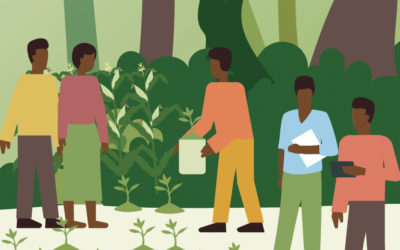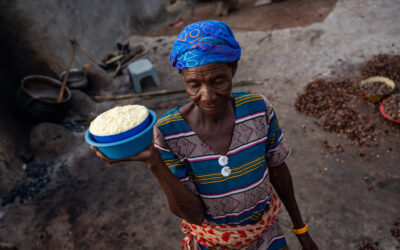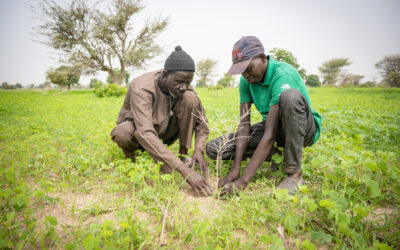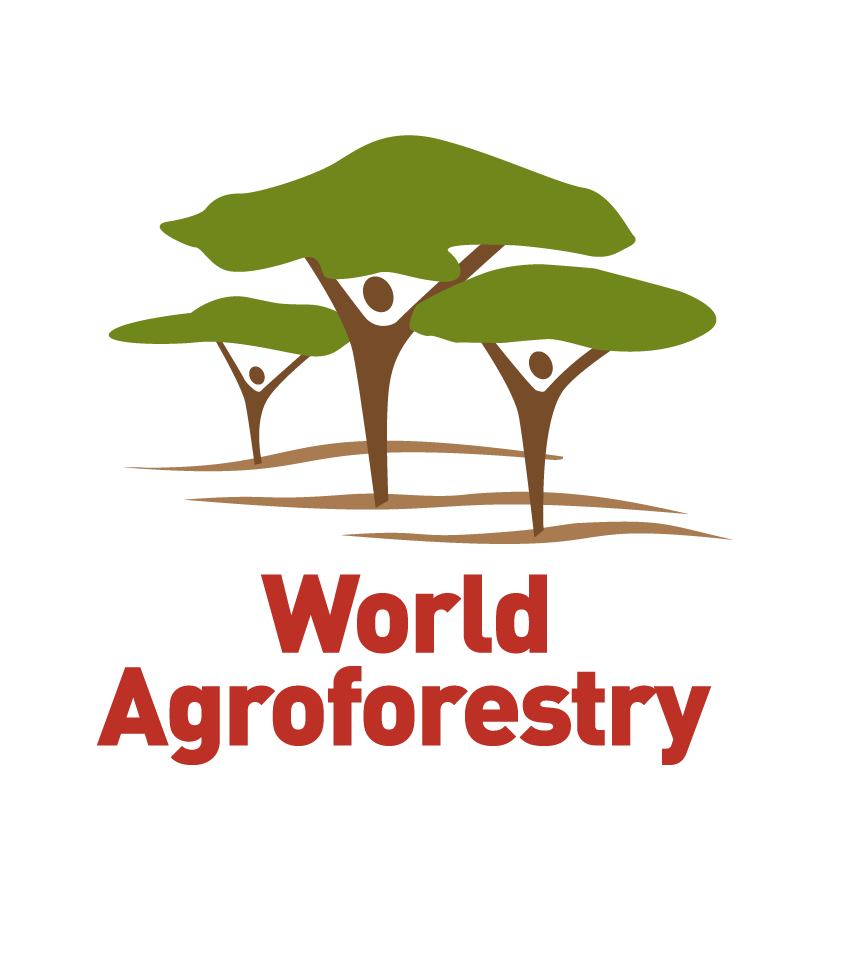Regreening Africa is restoring ecosystems in 8 countries and improving the resilience of 500,000 households across Sub-Saharan Africa.
Regreening Africa aims to reverse land degradation on 1 million hectares across 8 countries in Sub-Saharan Africa.
By 2022, we will have improved the livelihoods, food security and climate resilience of 500,000 households by restoring ecosystem services, particularly through agroforestry. Our work involves the deliberate and systematic integration of trees, crops and livestock—all critical elements for the sustainable management of land and maintenance of healthy landscapes.
Latest news
Outcome Stories – Exposé des Résultats
Within Regreening Africa, each country team identified policy and institutional challenges they planned to address through targeted activities to shift behaviour of stakeholders. Each year activities were undertaken and assessed to see the changes taking place....
Regreening Africa and Value Chains
The successful implementation of regreening hinges on strong value chains that incentivise reinvestment in agriculture and agroforestry. Tree-based value chains provide an opportunity to develop community-based businesses, improve employment for rural women and youth,...
Regreening Africa and the Great Green Wall
The Great Green Wall is a Pan-African initiative to restore large areas of land to benefit local communities. Through this initiative hundreds of millions of hectares will be regreened across the Sahel and Horn of Africa from Senegal through to Somalia. Regreening...
Where we work
Our key activities

Farm and landscape restoration
Using tree-based land restoration techniques (including Farmer-Managed Natural Regeneration (FMNR) and tree planting) but also broader watershed management efforts including soil, water and biodiversity conservation practices.

Scaling-up land restoration across the African continent
Cross-learning among eight implementing countries in Africa, led by international NGOs working with grass-root organisations and farmers to scale up regreening activities.

Influencing policy to incentivise restoration
Focus on policy influencing at the national and subnational levels in support of country-level agroforestry strategies and enabling policies and engaging key government ministries and other stakeholders on promoting land and tree tenure policies that encourage the adoption of agroforestry.

Developing restoration approaches to suit different local contexts
Building on country and local situations, needs and priorities, research, learning and communication are imbedded to match options to contexts and scales.
We seek improve the livelihoods, food security and resilience to the current climate crisis by restoring ecosystem services particularly through agroforestry.
Agroforestry involves the deliberate and systematic integration of trees, crops and livestock, which is critical for the sustainable management of land and maintenance of healthy landscapes.
“We’ve been planting trees for decades but we’re still talking about land restoration. Fifty years from now, we shouldn’t be talking about land restoration but adding value to what has been restored.”
“Value chains based on regreening activities must include farmers as partners so as to promote re-investment and wealth creation for land restoration.”
“It’s time to do research and development differently. Research needs to be informed by real development needs and development interventions need to be informed by research.”




















